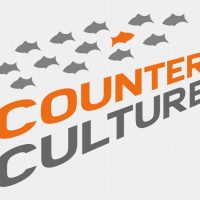 The open-mindedness and optimism of the ‘60s have given way to a progressive establishment equally as authoritarian, perhaps even more so, than the system the decade attempted to overthrow.
The open-mindedness and optimism of the ‘60s have given way to a progressive establishment equally as authoritarian, perhaps even more so, than the system the decade attempted to overthrow.
(Greg Jones – The Federalist) “For every action there is an equal and opposite reaction,” states Sir Isaac Newton’s third law. While Newton intended the law to describe physical processes, it can apply to culture as well.
Just as hyper-conservative post-war America produced the rebelliousness that defined the 1960s (and much of American society since), today’s breed of authoritarian liberalism is laying the groundwork for a cultural coup d’etat. …
The ‘60s, with its focus on individual freedom, both mental (New Age and Eastern religions) and physical (sex and drugs), was at its core little more than a rebuttal to an American mainstream rooted in nationalism and religious conservatism.
Rebellion entails opposing the existing power structure at every turn, be it the arts, education, or even religion. That’s precisely what occurred, and is occurring again.
The New Rebellion Takes Shape
The open-mindedness and optimism of the ‘60s have given way to a progressive establishment equally as authoritarian, perhaps even more so, than the system the decade attempted to overthrow.
The movement—much to the chagrin of many of the idealistic baby boomers who set it in motion—has grown old, ornery, and hellbent on maintaining its twisted orthodoxy, so much that it is openly abandoning its most basic ideals, such as individual liberty and skepticism of authority. Yet these ideals are still meaningful to modern-day conservatives and libertarians.
From universities to Hollywood to Silicon Valley, today’s twisted brand of fanatical progressivism permeates nearly every facet of American life. The ‘60s have, in many ways, produced exactly what the decade so despised. Nowhere is this horrifying evolution more obvious than in higher education.